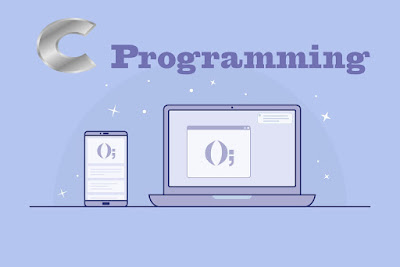In this article, I will be addressing about 7 Advantages and Disadvantages of C Programming Language | Drawbacks & Benefits of C Programming Language. From this post, you will know the pros and cons of C language.
Let's get started,
Advantages of C Programming Language
1. Cost Effective
As we all know error detection is a costly process. This is not in the case of C language. The structure of C language makes it easy to identify mistakes. Even some third party companies complete this task for you while charging less for the service.
2. Speed
Unlike in other programming languages which uses higher lines of instructions, C uses comparatively fewer. This makes C faster to execute programs. And the compiler further increases the efficiency by making code execution faster. The compiler works by compiling thousands of lines within a short period of time.
3. Simplicity
Developers who are new to coding can use C language to develop their skills. Compared to other programming languages, learning C is far more easier. There are various online tutorials available for you to get started with C.
Also, C language doesn't come with complex syntaxes. It uses simple keywords as syntaxes. Most developers are familiar with these terms since they are used in our day to day life. i.e. if, else, main, go to, switch etc...
4. Platform Compatibility
Programs written using C language is interoperable. Which means that it is compatible with multiple platforms. The reason for this is its output file .exe and ASCII characters. So developers need not to be worried about changing the code structure according to the operating system.
5. Memory Allocation
C programming language makes use of dynamic memory allocation which allows you to distribute memory during the system runtime. This feature is especially useful if you have no idea about the memory requirement of an application. Then afterwards you can run the program in C and allocate memory at the same time.
Unfortunately, this kind of feature is absent in other programming languages like Java and C++.
6. Library Support
C language is also known for its vast number of libraries. Both system generated and user defined functions are included in these libraries. All the general functions are incorporated inside the header file of C compiler. These functions can be used during the time of developing a program.
In the meantime, C also allows developers to create their own functions. Depending on the requirements these functions can be modified. This is what we call as User Generated Functions.
7. Debugging Process
C language is based on the modular structure. Their program is built using individual modules. Whenever there is a problem debugging is easier because correction of errors need to be performed separately.
Furthermore, this process is even made simple through the avoidance of complex statements. This includes variables, functions, conditions, pointers, conditionals and arrays. Once you encounter a problem, you just required to press Ctrl + D. This will terminate the process instantly.
Disadvantages of C programming Language
1. Security
C language does not hide much of the data since it focuses more on visibility. Hence, the security of this programming language is very much questionable. In addition to that, C language requires extensive knowledge on memory management. Otherwise, this can cause problems like buffer overflows.
2. No Object Oriented Programming Approach
Only Procedure Oriented Programming is supported in C language. Object Oriented Programming is absent. Therefore, some of the features like encapsulation, polymorphism and inheritance are missing in C programming language. Any algorithm here should be based on procedure oriented language. Possibly, in the form of function calls.
3. Error Detection
C language also lacks the feature of run time error checking. Only it supports compile type checking. Meaning that, the errors are shown only if the development of the program is completed. As a result of this, the programs has the tendency to crash or show incorrect outputs once they are executed. The process may become further complicated for larger programs.
4. Namespace Support
Concept of namespace is not present in C language. Namespace is a set of commands that allows to declare same names with different variables. Without namespace, the names cannot be reused across different contexts. Thus, each variable has to be assigned with a unique name.
5. Memory Management
All required resources are automatically assigned by the C programming language. Therefore, any kind of memory management techniques are not present in this language. However, C provides the option for dynamic memory allocation through the use of free mallocs, realloc, calloc like functions.
6. No Constructor & Destructor
Object Oriented Programming comes with a feature called constructors and destructors. Constructors and destructors are used to construct and destruct a variable. Since C language is not based on OOP, it lacks this feature. In this case, you must use a separate function.
7. Lack of Garbage Collection
There is also no such feature as Garbage Collection in C programming language. Garbage collection is a popular feature of programming languages which automatically attempts to reuse memory of a particular program and make it available to a different program.
This process usually starts as soon as there is no sufficient space. In C language, the responsibility of storage management lies on the developer.










No comments:
Post a Comment